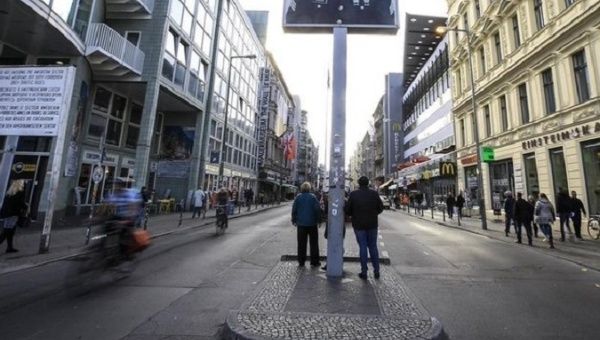Europe’s economic powerhouse Germany has been in a slump for some time, and the European Commission now predicts that it will be the only major European country to shrink in 2023.
Germany, a Future Recession
In May, the European Commission predicted that Germany’s GDP would contract by 0.6 percentage points; now, they expect it to contract by 0.4%. The Commission also revised down its 2024 growth prediction for Germany from 1.4% to 1.1%.
Rapidly severing energy ties with Russia after its invasion of Ukraine, Germany triggered a global economic crisis. In July, the IMF projected a 0.3% decline for Germany this year.
The “sick man of Europe” label, first applied to Germany in 1998, has been brought back into use by prominent economists to characterise the country’s economic difficulties.
As Berlin reports a significant decrease in production, this category is making a comeback.

Industrial slowdown in Germany
Without factoring in the impact of the COVID-19 pandemic, data from early September shows that manufacturing activity in the nation has been on the decrease since June 2009.
Comparing Germany’s current issues to previous crises, as some economists have done, is misleading, they argue.
“The situation in Germany now is substantially different from the crises that happened between 1995 and 2004. There is a high level of employment in Germany and there is a great need for workers. In this way, shock adaption is facilitate. Chief Economist Holger Schmieding of Berenberg Bank told CNBC International in August.
Weakened European Economy
Recent economic projections show that Europe will see a downturn. As of now, the European Commission anticipates a 0.8% growth rate for the 27 EU member states in 2018, down from 1% in May.
Next year’s outlook is far worse than this year’s. Inflation forecasts for the EU have dropped from 1.7% in May to 1.4% for the next year.
EU press statement from 9/11/2023: “Weak domestic demand, particularly in consumption, indicates that high and steadily rising consumer prices for most goods and services have a more significant impact than anticipated.”
The Problem with Inflation
Extremely high inflation rates are a serious problem there. Recent forecasts indicate that consumer prices may decline in the next months, but remain over the European Central Bank’s 2% aim until 2024.
Twenty nations make up the Eurozone, and by 2023, inflation expected to reach 5.6%, dropping to 2.9% the following year.
The Commission said that “Inflation in the services sector has proven to be more persistent than previously expected, but it is projected to continue slowing down as demand weakens due to monetary policy tightening and waning post-Covid stimulus.”
It cautioned by the Commission that pricing pressures might persist. Rates may be increase again next Thursday if the European Central Bank (ECB) votes to do so. Since July 2022, when inflation in the area hit an all-time high, the central bank has increased interest rates by 4.25 percentage points.



